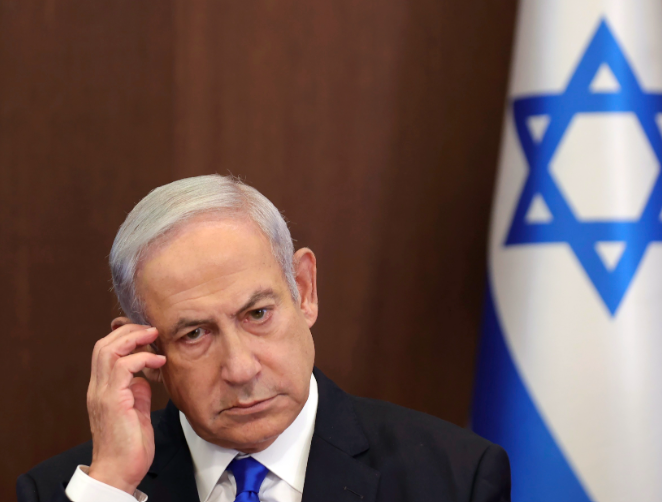Virendra Pandit
New Delhi: Forty-seven years ago, his elder brother Yonatan Netanyahu, a special forces commander in Israel Defense Force’s elite Sayeret Matkal unit, sacrificed his life during the famous Operation Entebbe to rescue a hundred Jewish hostages kidnapped and taken to Uganda by the Palestinian terrorists in July 1976.
Now, Prime Minister Benjamin Netanyahu, a former military man himself who declared “We are at war” on Saturday, is facing a similar situation as the Hamas terrorists have taken a hundred Israeli soldiers, officers, and citizens—the elderly, women, and children included—as bargain chips to force Israel to accept their demands, which may challenge the existence of the Jewish nation itself.
This was not a routine terrorist attack per se. It came as a full-scale invasion by a well-supplied and determined terrorist outfit from land, air, and marine routes. For the first time since its formation in 1948, Israel is fighting Palestinian invaders on its own soil
In fact, this fresh Israeli hostage crisis in the Gaza Strip has become a political trap for PM Netanyahu. This captivity is raising the heat on him and his hawkish, far-right alliance partners who are already under extreme pressure to respond to the killing of over 700 Jews in the Hamas invasion that started on October 7. In all, over 1,200 people were reported dead and hundreds of others were rendered wounded and homeless on both sides as the conflict entered its third day on Monday, the media reported.
The hostage crisis, however, is the biggest dilemma for Israel as it limits the directions and areas in which its armed forces could be actively used, military tacticians and strategists said.
It has stirred Israeli emotions more viscerally than any other crisis in the Jewish nation’s recent history.
Contrast these 100-odd hostages taken by Hamas with the terrorists taking just one young conscript, Gilad Shalit, in 2006. That relatively minor incident consumed Israeli society for years as a national obsession. So much so that it prompted Israel to heavily bombard the Gaza Strip and then relent and release over 1,000 Palestinian prisoners, many of whom had been convicted of deadly attacks on Israelis, in exchange for Shalit’s freedom.
PM Netanyahu’s pledge to unleash the full force of the Israeli military on Hamas has raised fears for the safety of the hapless Israeli hostages spread in undisclosed locations across the densely populated Gaza Strip. Israeli intelligence had failed to locate Shalit in the Gaza Strip, a tiny area of 25×6 miles. It now has a population of over 2.3 million, among the most densely-populated areas worldwide, and it will be a major challenge to locate so many Israeli hostages scattered at different places in the crowded localities.
What are Hamas’ demands? It has already sought the release of all Palestinian prisoners in Israeli jails– some 4,500 detainees, according to Israeli rights group B’Tselem–in exchange for the Israeli captives.
Since Israel captured the West Bank in the 1967 war, it took nearly 7,50,000 Palestinians as prisoners for varying prison terms, viewing them as “terrorists,” but seen as heroes by the Muslim community.
The Palestinian Authority’s self-rule government, which administers parts of the occupied West Bank, devotes some 8 percent of its budget to supporting them and their families.
If Israel releases them, Hama’s position will be strengthened in the Muslim world and correspondingly diminish the legitimacy of the Palestinian Authority.
But this would be nothing less than hara-kiri for Netanyahu and his government whose inhouse radicals and extremists want Israel to bulldoze the entire Gaza Strip. This would only heighten the risk of Israeli civilians falling victim to relentless Israeli bombardment, being killed by Hamas, or languishing for years in its captivity.
In the past, the ultra-emotional Jewish society’s inability to withstand its citizens in captivity has ignited massive public pressure campaigns which induced governments to agree to disproportionate exchanges. This included the Shalit deal in 2011, and Israel’s release of 1,150 jailed Palestinians in exchange for three Israeli prisoners in 1985.

